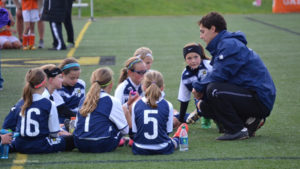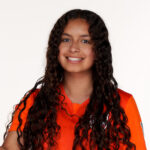Dure: Are pro coaches really better than parents?
 A wise old coaching sage once told me soccer coaches get better when they become parents. Yet if you look around the sidelines in travel soccer, you see a lot of people who are too young to be parents. And “parent coaches” are increasingly associated with purely recreational soccer.
A wise old coaching sage once told me soccer coaches get better when they become parents. Yet if you look around the sidelines in travel soccer, you see a lot of people who are too young to be parents. And “parent coaches” are increasingly associated with purely recreational soccer.
Are professional coaches, with no kids on the team and often no kids back at home, really an improvement over parent coaches?
The pros are certainly better than the stereotypical parent who didn’t play soccer growing up and can’t be bothered to get a coaching license. But that stereotype may no longer be typical. When we Gen-Xers were playing youth soccer back in the Dark Ages, former professional players on the sidelines were rare. Even college players were unusual — NCAA figures from 1981-82 counted 12,957 men and 1,855 women. Twenty years later, those numbers were 18,559 and 19,467. (Each gender’s participation rate is now well over 20,000.)
Those former college players are now parents. So are a lot of people who played serious club soccer and continue as recreational players as they hit their 30s and 40s. That growth in the sport means you may have parents in your club who, in addition to taking the licensing courses, are perfectly capable of demonstrating proper technique.
And all parent coaches have invaluable experience in something that isn’t easy to teach a 20-something coach with an E licens: dealing with children. It’s the toughest part of the job, and if you’ve spent any time at a youth soccer tournament, you can see it’s the part most pro coaches lack.
At the earliest ages especially, coaches are teachers. Advanced tactical acumen means nothing. Coaches need patience, enthusiasm and empathy.
Some pros have these traits. Some don’t. Some parents don’t, either, but many parents have gained perspective that a pro coach lacks.
Consider these hypotheticals:
When you see a coach doing nothing to rein in his players when a game is completely lopsided, is that coach more likely a pro or a parent?
 When you see a coach comforting a player who took an elbow to the ribs while giving up a goal, is that coach more likely a pro or a parent? When you see a coach berating a player for a supposed lack of effort, is that coach more likely a pro or a parent?
When you see a coach comforting a player who took an elbow to the ribs while giving up a goal, is that coach more likely a pro or a parent? When you see a coach berating a player for a supposed lack of effort, is that coach more likely a pro or a parent?
In my experience, the answers are “pro, parent, pro.”
Your experience may vary. That means you either have some enlightened pros or some scary parents.
Indeed, we can only generalize so much. As a rough rule of thumb, we can say pros are likely to be better at demonstrating proper technique, while parents will be better at managing the “psychosocial” component. Not always, but often.
That’s all the more reason to have a little more diversity on the sidelines. If a club has four Under-10 teams, maybe two pros and four parents would be a good mix.
And maybe the pros can spend a bit more time with the youngest players and youngest parent coaches, helping them learn skills and avoid picking up bad habits.
We’ve all dealt with loud, ignorant parents. Even parent coaches who’ve done a bit of training have to shake their heads when they hear “BOOT IT!” from the other side of the field. But before the pros consign the parents to the other side of a fence, they might want to see what those parents can offer.
—
Beau Dure’s book, Single-Digit Soccer: Keeping Sanity in the Earliest Ages of the Beautiful Game, is now available in paperback at Amazon and in electronic form at Amazon, Barnes and Noble, and other online booksellers. Read more about it at singledigitsoccer.com
SOCCERWIRE MARKETPLACE
- 15th Annual Loudoun Soccer College Showcase
- OFFICIAL FC BARCELONA SOCCER CAMPS
- The St. James 2025 Winter Futsal Academy Player ID Sessions
- New England Copa Surf 2026
- Adidas National Cup 2026
- Adidas Showcase 2025
- Adidas Preseason Clash 2025
- Applications are Now Open for the 2026 Jefferson Cup
- visitRaleigh.com Showcase Series 2025, hosted by NCFC Youth
- OFFICIAL FC BARCELONA CAMPS U.S.











